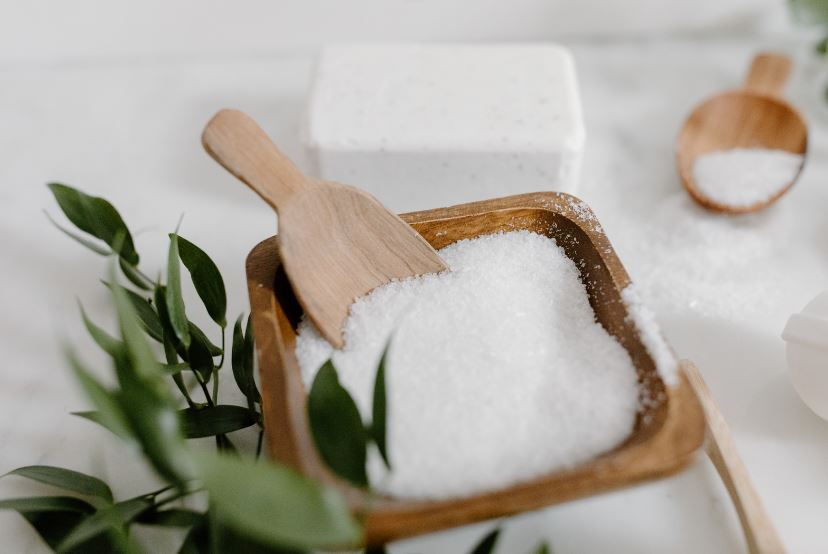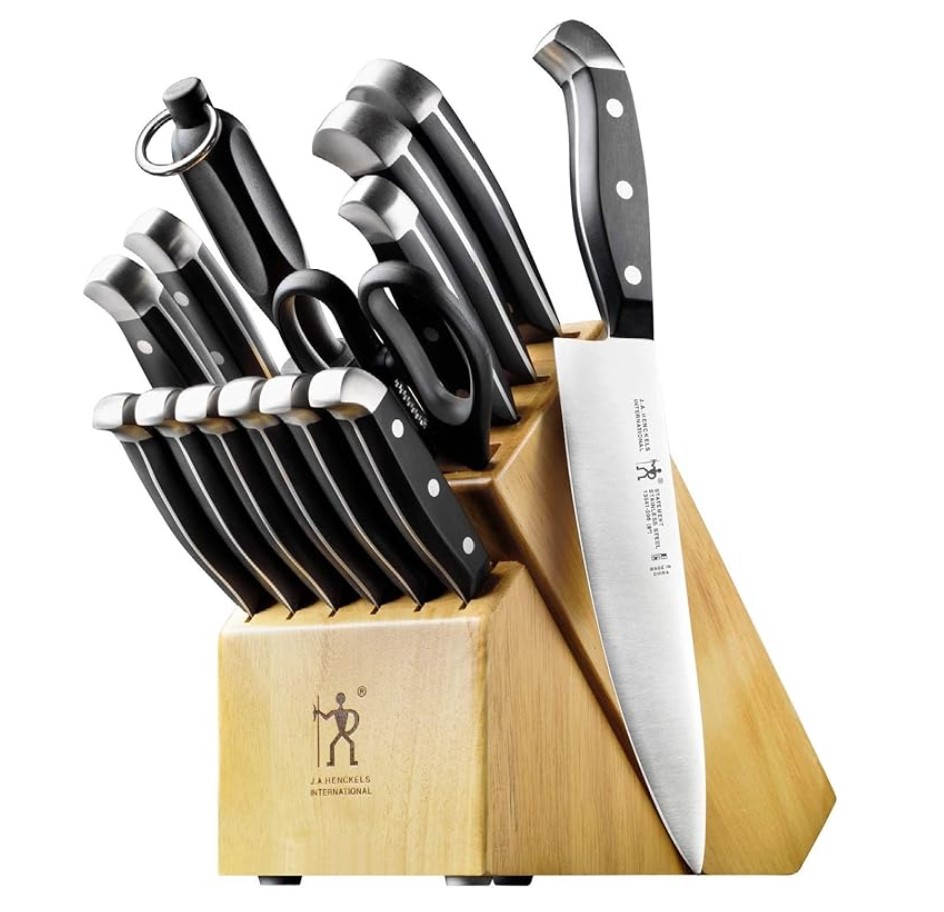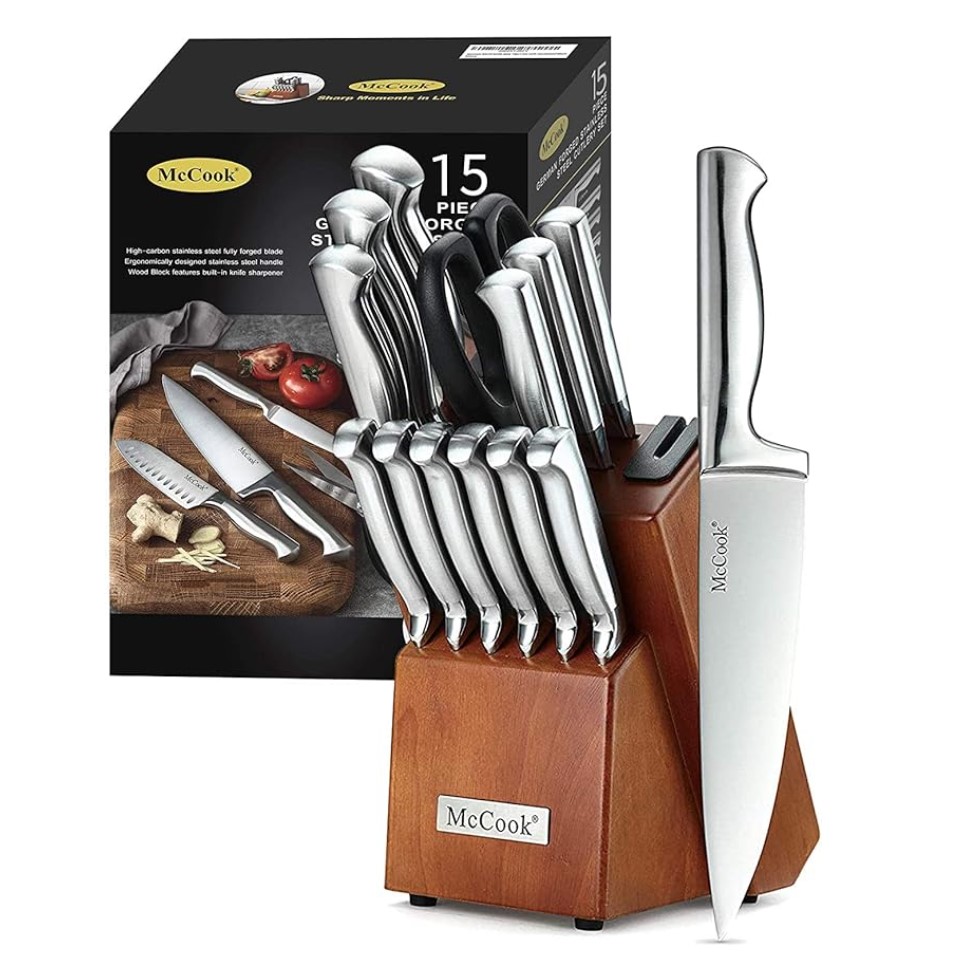Why Kosher Salt?


What is Kosher Salt?
It is a type of salt that has become very popular in cooking today. Kosher salt is made from either mined rock salt or evaporated sea water but it is mainly mined from salt deposits found on land.
It usually has no additives, unlike the other salts which add iodine or anti caking agents have been added.
Kosher salt has coarser and more uneven grains than table salt.
Despite its name, kosher salt is not necessarily used only by Jews. Many people who are not Jewish use kosher salt because of its superior flavor and texture.
The main difference between kosher salt and regular salt is the size of the crystals. Kosher salt typically has much larger crystals than regular table salt. This makes it easier to pick up and measure with your fingers. It also means that it dissolves more slowly in liquid, which can be beneficial when seasoning food.
Is Kosher Salt actually Kosher?
To be certified as Kosher the salt needs to have been certified by a rabbi as being fit for use in kosher food so despite its name not all Kosher salt is kosher unless the package has a Kashrut symbol.
To find out more about Kosher symbols check our article HERE.
Kosher salt is used in various Jewish rituals, such as kashering, which is the process of making utensils and food fit for consumption according to Jewish law.
Kosher salt is used in many kosher dishes, as it is thought to bring out the flavor of food better than regular salt. It is also used in some religious ceremonies, such as the Shabbat kiddush and blessing over bread.
Is Kosher Salt used for Steak and Meat?
The koshering process helps to remove blood from the meat, making it more palatable and easier to digest. This is where the name Kosher salt originated from as in Jewish dietary laws eating the blood of an animal is forbidden so it must be removed before consumption. So by rubbing salt over the meat it satisfies this religious requirement.
Kosher salt also helps to tenderize the meat, making it more flavorful. Seasoning steaks with kosher salt is perfect for maximum flavor as the size of the crystal allows for the best absorption into the outer layer of the steak
What else is Kosher Salt used for?
The rim of the Marguarita glass!
Is Kosher Salt used in brining?
Yes and the big difference with using Kosher salt in the recipe is that the water will be clear. Kosher salt dissolves more quickly and distributes more evenly because the crystals of the salt are bigger.
When salt with anti caking agents are used the water will turn cloudy and since Kosher salt is simply pure sodium chloride, it doesn’t cause clouding.
See our Blog on “Are Kosher Dill Pickles good for Diabetics?” HERE


Does Kosher Salt go bad?
As with all food when you buy it there will be a best by date as it is something the manufacturer must have on the label.
Kosher salt packages are no different however it does have an indefinite shelf life and can be stored for years without any issues.
However, it is possible for kosher salt to lose its flavor over time if it is exposed to air or moisture.
If this happens, simply add a new layer of kosher salt on top of the old one and seal the container tightly.
Make sure the container is stored in a cool and dry location
What Kosher Salt do Chefs use?
As for British Chef Gordon Ramsey “don’t expect to find flavorless refined table salt in Chef Ramsays kitchen not even for salting vegetable water. He recommends sea salt specifically French fleur de sel from Brittany or Maldon Salt “
Famous Israeli/British Chef Yotam Ottolenghi was asked the question of ingredients and following a recipe to a tee. He said he finds it nice to experiment with new ingredients and brands rather than getting stuck and tied up with one brand – “if you don’t have a particular ingredient by all means substitute it.”










